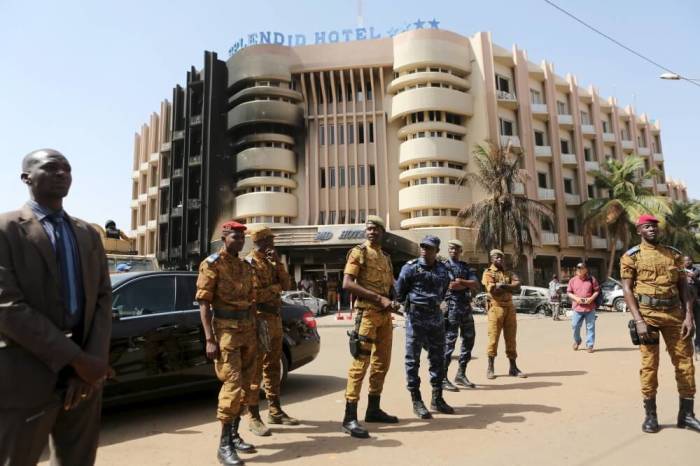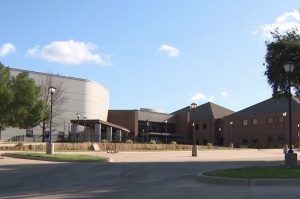USCIRF on rising violence in Burkina Faso: ‘Epicenter of global crises’

The U.S. Commission on International Religious Freedom has released a report highlighting rising attacks against houses of worship and religious leaders in Burkina Faso less than two months before the upcoming presidential election in the West African country.
Once viewed as a bastion of religious tolerance and interfaith harmony in west Africa, Burkina Faso “has suddenly found itself at the epicenter of several global crises, which have contributed to the devolution of religious freedom conditions in the country,” says the independent, bipartisan federal panel in its report.
“Attacks on both Muslim and Christian houses of worship and religious leaders have spiked as jihadist and other militia groups expand their area of influence throughout the country,” it points out. “The government is struggling to rein in the violence, and poor performance and misconduct by government-affiliated forces are exacerbating the situation.”
Burkina Faso, one of the most impoverished countries in the world, has been fighting armed groups with links to al-Qaeda and the Islamic State for more than four years.
USCIRF notes that the U.S. State Department’s International Religious Freedom Report for 2019 recorded that both Muslim and Christian communities in the country had experienced “unprecedented levels” of violence, including the targeting and killing of at least 38 people based on their religious identity.
Last May, heavily armed individuals killed four people in an attack on a Catholic church in Toulfe during Mass. Last August, militants attacked a Catholic and a Protestant church, killing three people. In December, 14 people were killed when unidentified gunmen attacked a church near the border with Niger. In February, 24 more were killed, including a priest, when armed men attacked a church in Pansi.
Attacks on Christian leaders include the kidnapping of a Catholic catechist and his wife in Arbinda in May 2018 by individuals that identified as extremist fighters, the report says. In June that year, armed fighters abducted an Assembly of God pastor and three members of his family in Soum Province.
Last April, a Protestant pastor and five followers were killed near the border with Mali, supposedly for their perceived support for local militias.
In February this year, suspected jihadists seized seven people at the home of a pastor in Sebba; five bodies were found days later, including that of the pastor.
Government and civil society leaders suspected that members of jihadist-affiliated groups like Islamic State in the Greater Sahara and Ansarul Islam are behind the attacks, USCIRF says.
“Analysts posit that the selection of religious targets, even by fighters with jihadist-affiliated armed groups, may not always be religiously motivated. Attacks against religious leaders and houses of worship resemble other attacks on local authorities and symbols of foreign influence, as these groups attempt to establish control over certain areas for political and economic gain,” the report adds.
USCIRF explains that many jihadists fled to the border region of Mali, Burkina Faso, and Niger, where they regrouped after the French defeat of insurgents and jihadists in northern Mali in 2012 and 2013. “Since 2016, both al-Qaeda and Islamic State affiliates have expanded their reach deep into the Burkinabe territory, aggravating other local tensions and triggering a security crisis.”
At least 58 people, including children, were killed in the provinces of Loroum, Kompienga and Sanmatenga in northern Burkina Faso within 24 hours, from May 29 to May 30, in three separate attacks by armed Islamic militants who were targeting Christians.
The U.K.-based aid agency Barnabus Fund reported that a local source spoke to a survivor, who said the militants targeted Christians and humanitarians taking food to a camp of internally displaced people, including many Christian villagers who had fled before the violence.
Referring to an attack on a humanitarian convoy in Sanmatenga province’s Barsalogho area, which left six civilians and seven soldiers dead, the survivor said, “The driver shouted ‘forgive, forgive, we are also followers of the [Islamic] prophet Muhammad.’ One of them [among the gunmen] turned to the other attackers and said, ‘they have the same religion with us.’”
The attack subsequently ended, the charity said.
Over 4,000 people were killed in Islamic extremist attacks in Burkina Faso, Niger and Mali in 2019, according to the U.N.’s envoy for West Africa and the Sahel, Mohamed Ibn Chambas.
Jihadist violence has now spread from the country’s north to the western Boucle du Mouhoun region where rice and maize are produced and transported to other areas, resulting in food shortages and food possibly being cut off for millions more in the region, The Associated Press reported earlier.
It is feared that the COVID-19 pandemic might exacerbate the situation at a time when 2 million people in the country are already facing food insecurity.
The U.N. said in February that the number of people displaced in Burkina Faso rose 1,200% in 2019 and that there are about 600,000 internally displaced people in the country as it was becoming one of the world’s fastest-growing humanitarian crises.





























